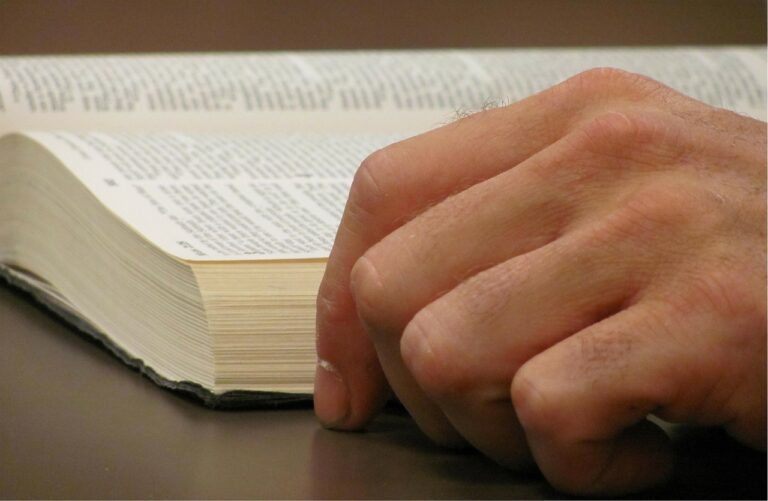According to Chapter 8 of the 15th Annual State of the Bible Report published by the American Bible Society (ABS), reading more of the Bible leads to more loving and generous behavior.
The latest findings come from a nationally representative survey of ABS conducted by NORC at the University of Chicago using the AmeriSpeak panel. The study included 2,656 online interviews with American adults in all 50 states and the District of Columbia, using data collected from January 2 to 21, 2025.
A press release on “Chapter 8: Love and Generosity” by ABS revealed that new data shows the impact of loving behavior on others, defined as prosocial behavior, and “generousity of time, energy, and finances based on engagement with the Bible, denomination, generation, and various other demographics.”
“There is no denying the correlation between engagement with the Bible and loving behavior and generosity. The more people engage with the Bible, the more they will give of their time, talents, and treasure, and act lovingly toward their neighbors,” said John Plake, chief innovation officer of the American Bible Society and editor-in-chief of the “State of the Bible” series.
“Our thoughts, actions, and words are a reflection of what we consume and what fills our hearts and minds. When we fill our hearts with the Bible, the greatest love story ever told, it’s no wonder that an outpouring of love ensues.”
Several questions in the ABS survey explored respondents’ views on prosocial behavior, including: Welcome immigrants into your community. Making friends with people of other races. Make friends with people of other religions. Consideration for the environment. Defend those who are oppressed by society.
Charitable activities from the previous year are also covered in Chapter 8. This includes the amount and percentage that respondents donate to local churches, other religious organizations, or non-religious organizations.
Other key findings in Chapter 8 showed that people who read the Bible four or more times a week were three times more likely to strongly agree that the Bible influences them to act more lovingly than those who read the Bible monthly (66% vs. 22%).
People who are committed to the Bible are more likely to strongly agree with prosocial statements than “mobile centrists” or “biblical indifferents.”
The only area in which Bible-committed people were less likely to express strong or very strong agreement than non-Bible-committed people was regarding the importance of caring for the environment (53% vs. 56%, respectively). Agreement on this issue is highest among those who do not engage with the Bible.
The ABS press release added, “Moving middles were less committed to prosocial behavior than Bible-participating and non-Bible-participating groups.”
“While the generational differences are modest, Gen Z is most likely to agree on the importance of caring for the environment. Millennials stand out in agreeing on advocating for the oppressed, and Boomer+ are leading the way in making friends with people of other races and religions.”
Almost half of the committed Christians surveyed who read the Bible at least monthly strongly agreed that the Bible helps them become more generous. This is double the percentage of casual or nominal Christians who use the Bible at least monthly (24% for both), the press release states.
For donors, the median donation amount when they engage with the Bible ($2,000) is four times higher than when they leave the Bible ($500).
The ABS release also notes that “only 51% of people who are not committed to the Bible donate to charities or churches, compared to 86% of people who are committed to the Bible.” “Three-quarters (75%) of Movable Middles donate.”
Evangelical Protestants have the highest donation rate compared to other Christian denominations, at 78%. The median maximum amount given by donors is $1,500.
Black Protestant churches have historically been shown to have higher median giving ($1,000). They give the highest percentage of their donations (57%) to local churches.
By comparison, mainline Protestant donors have the lowest rate of giving to local churches (40%) (p. 167).
The final chapter of “The State of the Bible” will be published by ABS next month. This includes a 2025 data summary and an exclusive preview of what’s to come in 2026.
To download Chapter 8 of State of the Bible 2025, visit StateoftheBible.org.
